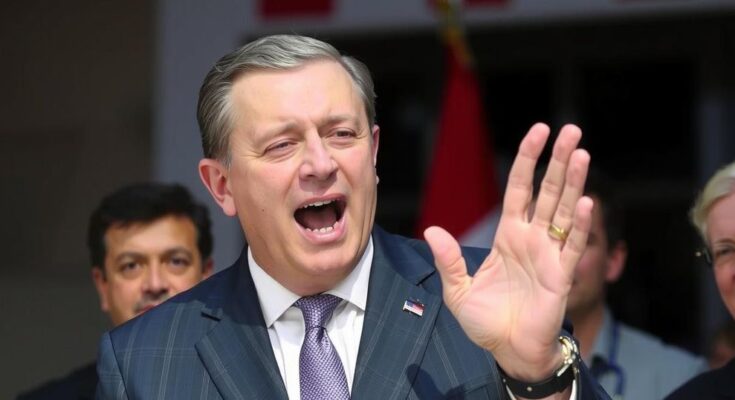Croatia’s President Zoran Milanović won reelection with nearly 74% of the vote against ruling party candidate Dragan Primorac. His victory indicates a continued challenge to the government led by Prime Minister Andrej Plenković and positions Milanović as a pivotal figure in Croatia’s political dynamics, particularly in relation to the EU and NATO policies.
Zoran Milanović, the opposition-backed President of Croatia, achieved a landslide victory in his reelection bid this past Sunday, defeating the ruling conservative party’s candidate, Dragan Primorac, by a significant margin in the runoff election. With nearly 74 percent of the vote, Milanović reaffirmed his political influence, while Primorac garnered around 26 percent, according to the near-complete results released by Croatian election authorities. This victory promotes Milanović’s assertive political stance, particularly his criticisms of the European Union and NATO’s approach to international conflicts, notably the ongoing war in Ukraine.
Zoran Milanović previously served as Prime Minister and has been a politically polarizing figure in Croatia, known for his combative and outspoken demeanor. He has regularly criticized the current Prime Minister, Andrej Plenković, and the ruling Croatian Democratic Union (HDZ) party, particularly regarding issues of corruption and NATO involvement. Milanović’s reelection comes during a challenging period for Croatia, facing inflation and labor shortages, enlarging the significance of his role in shaping both domestic and foreign policy as an EU and NATO member.
Milanović’s reelection highlights a notable shift in Croatian politics, emphasizing a potential power struggle with Prime Minister Plenković. His winning stance against the ruling party marks a critical moment for both his presidency and the political landscape of Croatia amidst ongoing national challenges. As he aims to assert his authority, Milanović’s administration is anticipated to maintain a confrontational trajectory regarding both domestic policy and international relations.
Original Source: www.pbs.org




